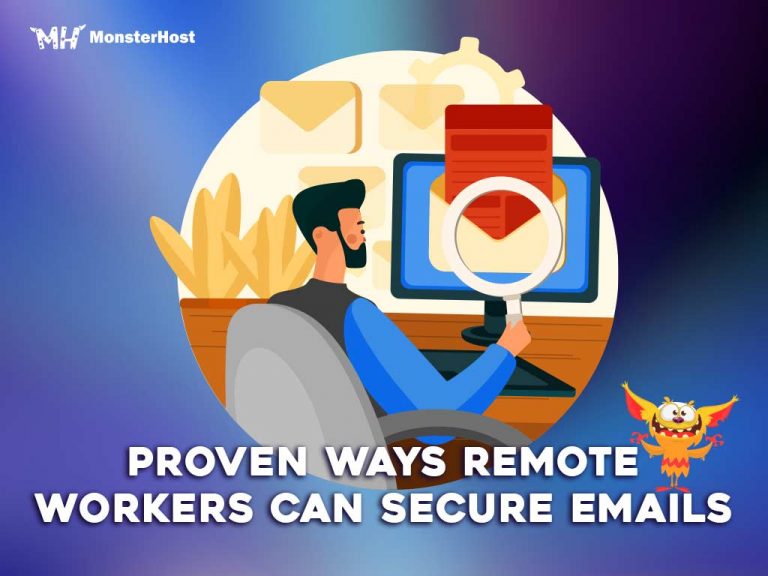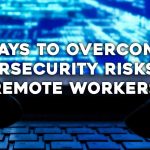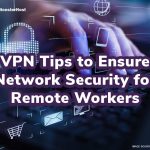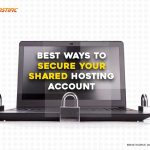Your email’s security should be at the forefront of your mind, especially if you are a business owner. Many hackers and cybercriminals lurking about put in much effort to compromise your business email account. Since the start of the global pandemic in early 2020, remote work skyrocketed. Predictions are that this type of work will only escalate. As we adapt to this new normal, we have to be vigilant and find the best ways to secure our emails. One such way is to host emails with secure web hosting companies. And it’s important now more than ever to implement more stringent strategies to keep all your data secure.
To help you do this, we will explore 5 proven ways remote workers from any business can have secure email platforms. But first, look at why you should care about the security of your emails.
Table of Contents
Why secure emails matter?
A breach of your business email can result in the exposure of your company and clients’ sensitive information. Credit card information, customer data, and access your business’ web hosting account in the hand of hackers can be detrimental.
You have worked tirelessly to build your company and securing your email will help to ensure that it grows and is around for years to come.
5 proven ways to secure your email
Knowing that malicious individuals can ruin your hard work in mere minutes is scary. However, just as strong gates, alarms and guards protect brick and mortar businesses, there are things you can do to protect your email and privacy. Here are five proven ways to secure your email:
1. Enable Multi-factor Authentication (MFA)
Source: Mashable via Giphy
The first thing that a hacker or cyber-criminal may think of in gaining access to your email is to steal the login credentials. By enabling multi-factor authentication, you will be able to shut down access to your account if there are attempts to access it without your permission.
Multi-factor Authentication, MFA is a cybersecurity approach that prevents individuals from using your credentials (that have been illegally acquired) to login into your email. With Multi-factor authentication, when the password is entered, the user will receive a code via text or an alternate email; it is only with that code that the login process can be complete.
MFA may also require biometric data such as a fingerprint or face ID. It is a very effective tool that helps to deter cybercriminals. They would not usually possess the secondary authentication data that will fortify and secure your email.
2. Frequently update your network’s security
Every day, a new type of network threat is developed. Cybercriminals are also seeking new and innovative ways to compromise business emails and networks to access classified information. Ensure that you always have the latest network security update. This will provide the highest security for you as updates aim to fix security loopholes and faulty code. The moment a system update becomes available be sure to have it installed.
Pro tip: If you’re working remotely, consider a VPN for an extra layer of protection on private or public WiFi.
3. Educate employees on business-focused phishing scams
Cybercriminals aim to exploit business emails through phishing attacks. Phishing targets users within business networks.
Phishing is legitimate-looking emails that contain malicious links. If the user clicks this link, unsuspecting malware embeds itself on their computer and spread throughout the network, wreaking havoc. Phishing may also prompt users for their credit card information as well as login credentials.
This is why those affiliated with your business must be educated on these scams that take place through email phishing. Employee education should be top of your list as they need to know the dangers of phishing and what they are to do should they receive an email that seems ‘phishy.’
4. Make your email password ‘un-hackable.’
Source: FallonTonight via Giphy
Hackers usually begin their malicious activity by trying to crack your email’s password. They usually do this by secretly installing key-logging software on your personal computer. When this isn’t possible, they go about it the old-school way and guess what it could be.
A secure email password becomes hack-able when the user uses obvious information from their life that someone can easily put together or figure out, it’s too short, or it’s too simple.
When setting an email password, especially for your business email, it should be unique and strong. What exactly does that mean? Your email password should use numbers and special characters and a combination of upper and lower case letters.
Do not use anything that will come close to your personal information, such as names and birth dates. Your computer can also help you; it can prompt you with suggestions of unique passwords that will be hard to figure out, as they do not meet any specific criteria.
5. Consider migrating to a Microsoft hosted exchange platform
Having a professional and secure email hosting service will do you and your business wonders. Secure email communication easily using Hosted Exchange. Cloud-based solutions are on the rise and are easily preferred by businesses in securing remote work environments.
Host your emails on a secure remote server equipped with protected remote servers with advanced archiving technology for maximum security. The best part is that the installation is fast and easy. Hosted exchange is a trusted email platform that will keep your trusted data out of the hands of hackers and other cybercriminals.
Monthly subscriptions are affordable and come with ample storage space and unlimited 24/7 support.
Final thoughts
Securing your email is as essential as the capital used to start your business. We hope that these 5 proven ways to secure email as a remote worker have helped you to secure your company and client data. If you have some suggestions of your own, feel free to share them with us in the comments section below.






